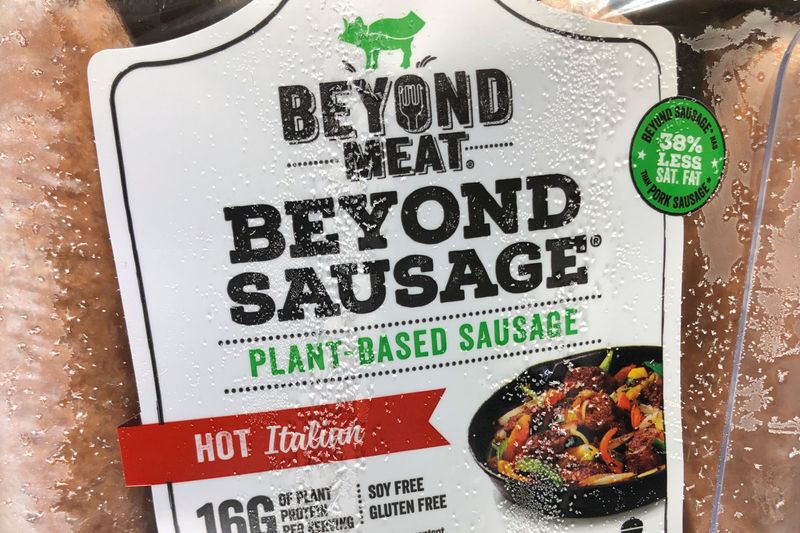By Richa Naidu and Nivedita Balu
(Reuters) - Beyond Meat Inc (O:BYND) on Tuesday reported quarterly sales that topped analyst estimates as consumers bought more plant-based meat from supermarkets during coronavirus lockdowns, offseting weaker demand from fast-food chains.
The plant-based meat industry, in particular, has benefited from restricted supplies of poultry and meats due to rising coronavirus cases among workers in processing plants.
Sales across the food and consumer goods industry have surged in recent months as shoppers stayed home instead of eating at restaurants. Beyond Meat, whose burgers and sausages are sold at stores like Costco (O:COST) and Walmart (N:WMT), said U.S. retail sales nearly tripled to about $90 million, while revenue from international stores rose about 167% to $9.6 million.
Results were also helped by newly launched value packs and discounts that Beyond Meat gave some U.S. retailers this summer, hoping to take a bigger share of the burger market as prices for beef rose during the quarter due to Covid-19.
"When beef prices spiked, that presented an opportunity for us," Chief Executive Ethan Brown said in an interview.
While Beyond Burgers are usually twice the price of beef burgers, the discounted versions cost only 20% more. The value packs were in stores only for the last two weeks of the quarter, but accounted for 16 percentage points of U.S. retail sales volume growth, Beyond Meat said.
However, sales fell nearly 61% at the company's U.S. food service business, which supplies plant-based patties, chicken and sausages to fast-food chains like KFC (N:YUM) and Dunkin Brands (O:DNKN). Revenue from international restaurants more than halved to $7.2 million.
Beyond Meat typically gets about half its global sales from food service customers, many of which closed stores and limited menus during the quarter. Beyond Meat transferred some food service assets and production to producing retail products, repacking and rerouting shipments to meet demand from grocers, Brown said.

Net revenue rose 69% to $113.3 million in the second quarter ended June 27, beating analysts' expectations of $99.73 million, according to IBES data from Refinitiv. The company reported a wider net loss, of $10.2 million versus $9.4 million a year earlier.